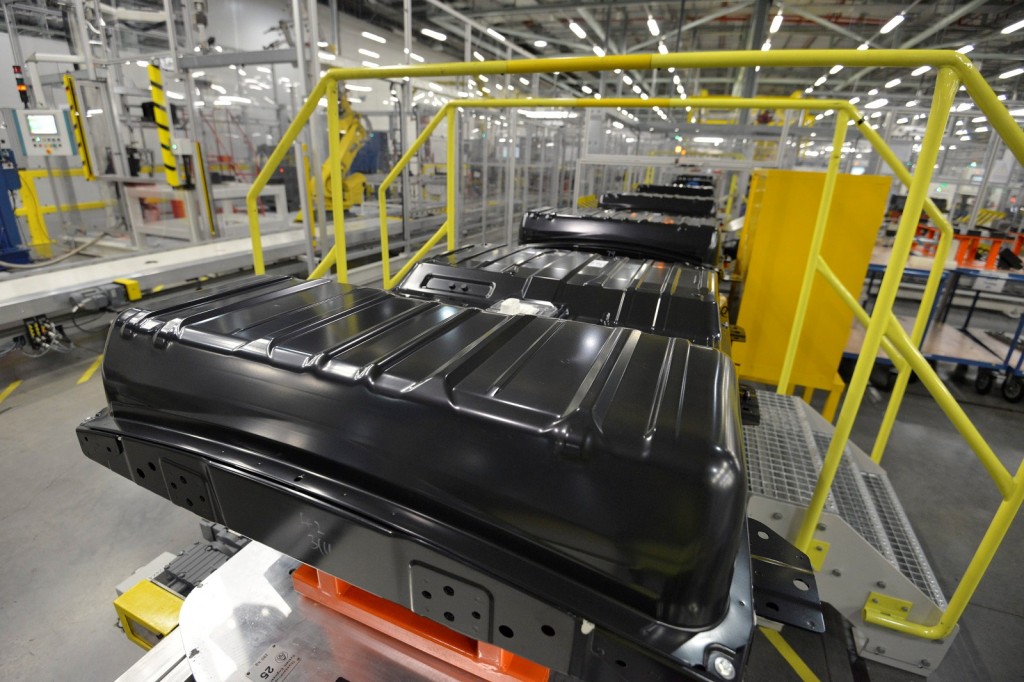Estimates of electric-car market share over the coming decades vary wildly, but certain trends seem to be working in their favor.
Battery prices should continue to fall, and tougher global emissions standards may put increasing pressure on automakers to build larger numbers of electric cars.
But can automakers handle a sudden increase in electric-car production brought on by these factors?
DON'T MISS: Electric cars lead to carmaker job cuts: new flashpoint? (Dec 2016)
Not easily, according to new analysis.
Electric cars will arrive in large numbers more speedily than anticipated, and the transition away from internal-combustion cars could prove painful for automakers, according to a recent article published in The Economist.
Among the more optimistic predictions, Morgan Stanley has said electric cars will grow from less than 1 percent of the global new-car market to around 7 percent by 2025, and rack up 7 million sales per year by that time.

Lithium-ion cell and battery pack assembly for Nissan Leaf electric car in Sunderland, U.K., plant
Anticipated lower prices for battery cells are part of the reason for that optimism.
Exane BNP Paribas predicts that the cost of a 300-mile electric car will fall to $30,000 by the early 2020s.
Other analyses have predicted that battery costs will go below $100 per kilowatt-hour in the next few years, passing what many consider to be the barrier for cost parity with internal-combustion cars.
ALSO SEE: Cost to make FCA diesels emission-compliant in Europe: half a billion dollars
At the same time, the cost of making internal-combustion engines compliant with stricter global emissions standards may force a transition to battery-electric powertrains, The Economist argues.
That may at least soon be the case for diesel engines: Fiat Chrysler Automobiles CEO Sergio Marchionne has said the cost of making FCA diesels compliant with European emissions standards may soon exceed that of converting to electric or hybrid powertrains.
However, it's worth noting that a Technical Assessment Report released by U.S. regulators last year concluded that automakers are capable of meeting 2025 efficiency standards without large numbers of electric cars, by using currently-available technologies to continue improving the efficiency of internal-combustion engines.

2015 BMW i8 construction at Leipzig plant
If automakers do make a mass switch to electric cars, the initial costs involved could be significant.
General Motors has been estimated to lose $9,000 on every Chevrolet Bolt EV it sells, and the Renault-Nissan Alliance too loses money on its electric cars, The Economist says.
Development costs and the costs related to tooling up for production are among the most significant factors in the potential profitability of a vehicle.
MORE: Mercedes to launch 10 electric cars by 2025 under EQ sub-brand (Oct 2016)
To launch large numbers of new electric models, automakers will have to invest heavily in both areas.
Granted, some automakers have already announced plans to do exactly that.
By 2025, Volkswagen plans to be selling 1 million electric cars per year, and will launch 30 different electric models across multiple brands in the coming years.

2015 BMW i8 construction at Leipzig plant
Mercedes-Benz plans to launch 10 new electric models under its new EQ sub-brand by that time.
This year alone, BMW hopes to sell 100,000 electric cars and plug-in hybrids—the same number it has sold in the past three years.
GM CEO Mary Barra has said the Chevy Bolt EV will form the basis for a range of electric cars.
It should be an interesting few years.
_______________________________________________












